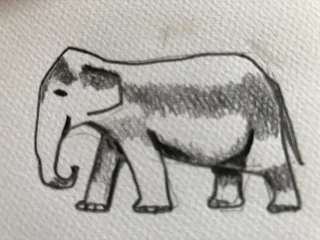Anyone must've made at least one (or more than hundreds!) spelling errors in life. I'm not an exception. I misspelled "mouth" as "month" in the post about netsuke sculpture and was unaware of it until it was pointed out by a kind reader. I always perform a spell check before publishing posts or submitting documents to clients at work, but as writing "month" instead of "mouth" isn't a misspelling, but the misuse of words, it went through a spell check without being detected....
One day about ten years ago, I was translating several provisions of Japanese tax law about donations. Japan, as other countries, exempts certain donations to non-profit organizations serving the public interest from tax. Since the translated document was for a big client, meaning it was urgent, as soon as finishing translation, I emailed the document to a British proofreader and went to the ladies' room.
Coming back, I saw him smirking, pointing to the screen of his computer to indicate a misspelling of "public" as "pubic."(OMG!) Since then, my right ring finger has always twitched when I intend to type "public."...
先日、根付について書いたところ、読者の方からスペルミスをご指摘いただきました。(「mouth」が「month」になっておりました。ご指摘、ありがとうございました!)。ブログでも仕事でも、スペルチェックはいつもかけているのですが、こういうのはすり抜けてしまいます。そこで似た事例をもう一つ。
以前、日本の公益法人の寄附金税制について訳していた時のことです。日本に限らず、公益法人は寄附金について税制優遇を受けられる場合があります。急ぎの仕事だったのでガーっと訳し、ネイティブチェッカーにチェックをお願いし、トイレに行って戻ってきたら、そのチェッカー氏、ニヤニヤと画面を指差しているではありませんか。見ると何と「public interest(公益)」が「pubic interest (言えません。。。)」に(恥)。。。
以来、「public」と書くときは薬指がピクピクするようになりました。

















